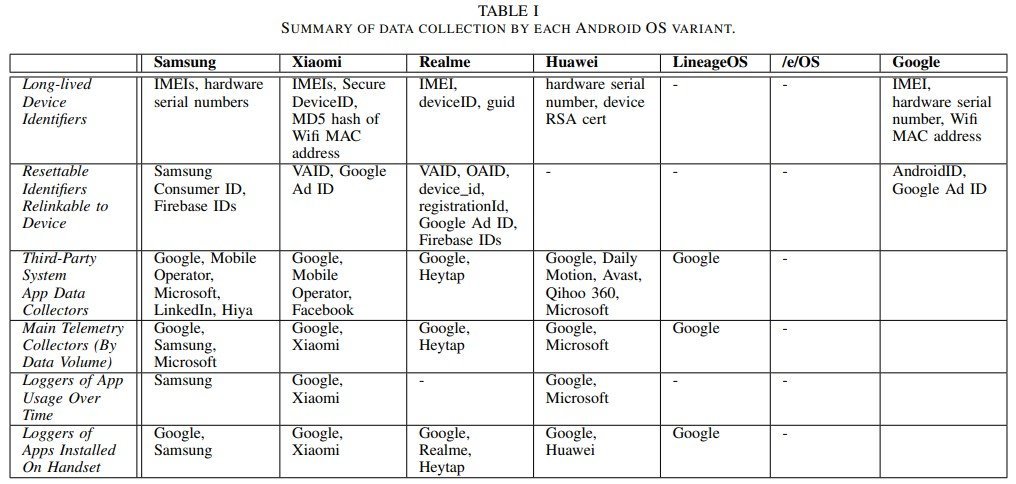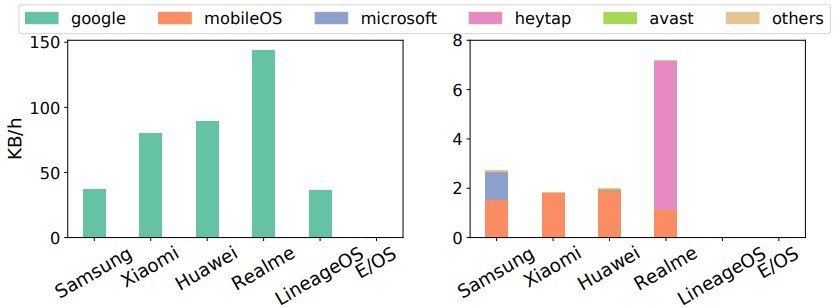A new study by a team of university researchers in the United Kingdom has revealed a number of privacy issues arising from the use of Android smartphones.

The researchers επικεντρώθηκαν σε συσκευές Android, και συγκεκριμένα σε μάρκες Xiaomi, Realme and Huawei, and in addition to the original Android operating system in two forks such as LineageOS and /e/OS. The conclusion of the study is worrying for the vast majority of Android users.
With the notable exception of / e / OS, even when it is slightly tuned and the handset is idle, these vendor-customizable Android variants transmit significant amounts of information to the operating system developer and also to third parties (Google, Microsoft, LinkedIn, Facebook, etc.). ) that have system applications preinstalled.
As the summary table shows, sensitive user data, such as permanent IDs, application usage data, and telemetry information, is not only communicated to the device vendors, but is also transferred to various third parties, such as Microsoft, LinkedIn and Facebook. .

Source: Trinity College Dublin
And to make matters worse, Google appears at the end of downloading all the data collected, almost the entire table.
There is no way to "disable"
It is important to note that as far as mentioning the collection data, there is no opt-out option, so Android users are powerless against this type of telemetry.
This is especially true when smartphone vendors include third-party applications that collect silent data, even if they are not used by the device owner and cannot be uninstalled.
For some of the embedded system applications such as miui.analytics (Xiaomi), Heytap (Realme) and Hicloud (Huawei), researchers have found that encrypted data can sometimes be decrypted, putting users at risk for MitM attacks ( man-in-the-middle).

Source: Trinity College Dublin
As the study points out , even if o user change advertising IDs for your Google Account on Android, the data collection system can re-associate the new ID with the same device, and append it to the original tracking history.
Users are identified using a variety of methods, such as SIM, IMEI, location data history, IP address, SSID, or a combination of these.

Possible data collection points that are interconnected
Source: Trinity College Dublin
Android affiliates, such as / e / OS, are becoming increasingly attractive as they offer more privacy to their devices. However, the majority of Android users remain locked in an endless stream of data collection, where regulators and consumer protection organizations must intervene and put an end to it.






Fortunately, Google informs us and we find out through Facebook that they do not do such things ……
Come on! The Chinese do such things ????
Or the universe follows us, as an eternal victim of unemployment, but in the end it becomes CHAOS. ?